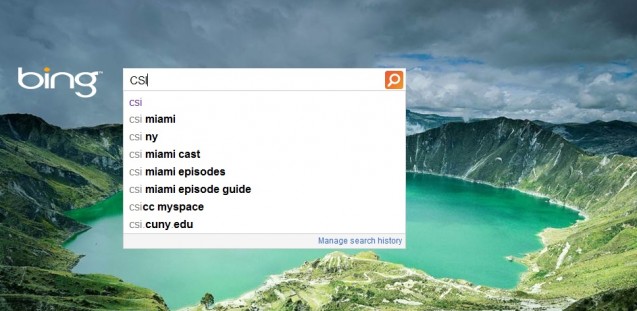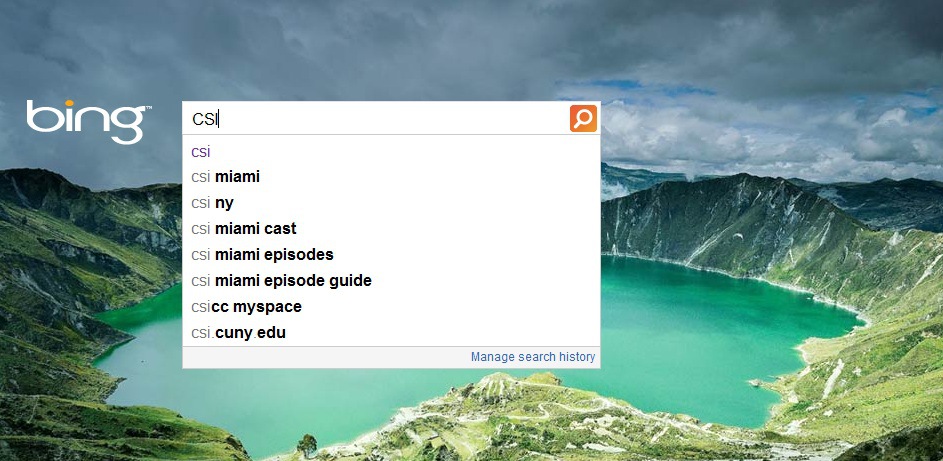
Microsoft Bing, which according to a recent ComScore report is slowly gaining market share from its competitor Google, has announced its newest feature – Adaptive Search. On the Microsoft Blog, Adrian Cook explained the new feature as follows:
“Every time you search on Bing, the information provided helps Bing understand what you’re trying to do. The more you search, the more Bing can learn – and use that information to adapt the experience so you can spend less time searching and accomplish what you set out to do.”
Bing is planning to personalize the search results for each individual user based on the data the search engine collects. This information will be used to determine the “hidden context” of individual search queries and deliver more personalized results.
For example, Bing states that most users who search “CSI” are looking for information related to the popular television series. However, if the user lives in Twin Falls, that user may be looking for information related to the College of Southern Idaho. Bing’s Adaptive Search will analyze a user’s previous interactions with the search engine and determine the intent of the search query.
In addition to determining whether the user in the above example is searching for the television show or the nearby college, Adaptive Search will narrow the results even further. For example, Bing will determine not only that a user is looking for the college, but also that the user most likely wants the webpage with information on financial aid. With over half of search engine queries being ambiguous, Adaptive Search could greatly increase Bing’s market share.
Since launching in June 2009, Microsoft Bing has increased its market share from 9% to 14.7%. If Microsoft Bing can continue to adapt to the constantly changing search environment and introduce innovative features, they should continue gaining on the competition.
[Sources Include: Bing Search Blog & ComScore]




